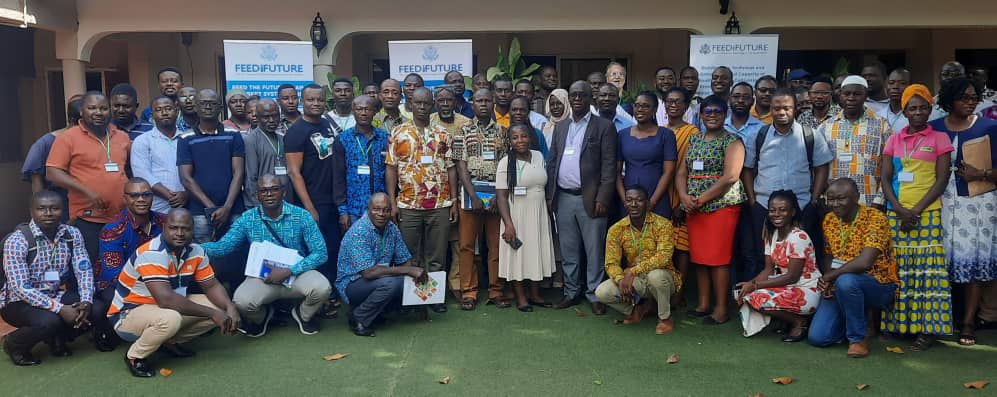By Albert Futukpor
Tamale, Nov. 25, GNA – A research pipeline analysis workshop has been held to create a platform for interaction amongst agricultural sector actors in the northern part of the country for the production, commercialisation, and use of research products.
The two-day workshop, held in Tamale, was also for participants to work together in assessing and selecting released yet, to be commercialised varieties of crops from Council for Scientific and Industrial Research – Savanna Agricultural Research Institute’s (CSIR-SARI) research facility for upscaling to smallholder farmers.
Participants included researchers, seed companies, out-grower businesses, aggregators, agro-input dealers, agro processors, ICT4Ag firms, officials from the Plant Protection and Regulatory Services Division of the Ministry of Food and Agriculture and National Variety Release Committee.
Research scientists from CSIR-SARI, and CSIR-Crops Research Institute took turns to present key crop varieties under trials, varieties released but yet to be commercialised, and priority varieties for upscaling, where private sector participants spoke about how they preferred the varieties, and key considerations for commercialising and upscaling them.
The varieties included maize, soy, cowpea, bambara, fruits and vegetables amongst other technologies.
The workshop was organised by Feed the Future Ghana Market Systems and Resilience (MSR) Activity, a five-year initiative, which is funded by the United States Agency for International Development (USAID) to increase inclusive agriculture-led economic growth in the northern part of the country.
Mr Michael Dockrey, Chief of Party, MSR Activity, speaking during the workshop, said it was to ensure that all partners were working together to build researches based on the market’s needs and what farmers wanted.
Presently, agricultural research institutes, universities, Innovation labs and private firms release new technologies to improve agricultural production and post-harvest handling and processing; from novel seed varieties to enhanced storage facilities to innovative processing equipment.
However, most of the advances remain on the shelf without reaching the intended users, mainly farmers, because most of the time, crop and agricultural researchers work in relative isolation and there is not enough interaction between them and the private sector that is ultimately the ones that will have to adopt and commercialise research findings and products.
This necessitated the workshop to have a common platform that increased interaction among stakeholders for the production, commercialisation, and use of research products.
Mr Dockrey said he was happy that CSIR-SARI was willing to respond to the market’s needs and gave assurance that “MSR Activity is here to facilitate that dialogue to make the market more efficient and more responsive to farmers’ needs in northern Ghana.”
Dr Francis Kusi, Director of CSIR-SARI described the workshop as a very important opportunity for CSIR-SARI, because, “We were able to let the participants know what we have, what we are bringing on board and also receive their feedback, which will guide us as to the way forward and how to strategise to meet demands.”
He added that, “So, right from here, we are going to realign our line of action to see how we can take advantage of the market that has been identified to ensure that our products are relevant to our clients to ensure food security and national development.”

GNA